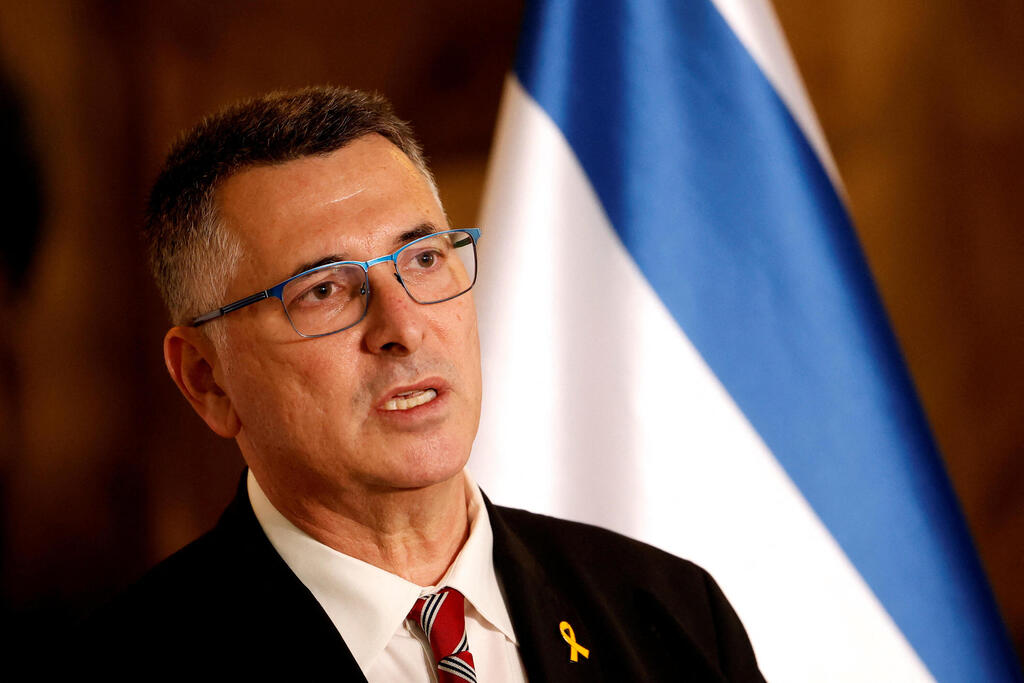Getting your Trinity Audio player ready...
Coalition leaders met Sunday to discuss a contentious bill to overhaul the judicial appointments committee and a proposal to dismiss Attorney General Gali Baharav-Miara, a polarizing figure among government officials.
The push to revive the divisive legislation is spearheaded by Justice Minister Yariv Levin as part of long-standing tensions between the government and the Supreme Court, with critics from both sides accusing each other of eroding Israel's democracy.
2 View gallery


Attorney General Gali Baharav-Miara and Justice Minister Yariv Levin
(Photo: Alex Kolomoisky, Yoav Dudkevitch)
The meeting, which ended without decisions, saw hardline National Security Minister Itamar Ben-Gvir raising the issue of Baharav-Miara's dismissal. Ultra-Orthodox parties, however, made clear they would not support any initiatives, including judicial reforms, until a draft exemption law for yeshiva students is passed.
Prime Minister Benjamin Netanyahu, who is barred from direct involvement in judicial matters due to a conflict of interest stemming from his ongoing corruption trial, emphasized coalition stability, saying, “We must pass the budget and project stability, even if disagreements remain.”
Ben-Gvir argued for initiating the process to dismiss Baharav-Miara, claiming she obstructs government operations. Levin outlined the formal steps required, including presenting the issue to the Cabinet, involving a special review committee, and returning the matter to the Cabinet for a final decision. Coalition leaders expressed no overt opposition to the proposal, though progress remains uncertain.
Get the Ynetnews app on your smartphone: Google Play: https://bit.ly/4eJ37pE | Apple App Store: https://bit.ly/3ZL7iNv
Baharav-Miara has faced criticism for opposing government decisions and refusing to defend controversial policies in court. Critics accuse her of aligning with judicial overreach, while supporters see her as a vital check on executive power.
Levin also addressed his escalating confrontation with the Supreme Court, which recently blocked his refusal to convene the judicial appointments committee. “They rejected every compromise we proposed,” Levin said, describing the court’s orders as “outrageous.” Coalition whip MK Ofir Katz added, “The judges threw every compromise out the window—it seems they want to crush us.”
Some coalition leaders, including Finance Minister Bezalel Smotrich and Shas Party head Aryeh Deri, expressed reservations about reintroducing the 2023 judicial reform proposal, warning it could deepen public tensions. Foreign Minister Gideon Sa’ar, while supporting measured reforms, cautioned against further polarization and urged responsibility given Israel’s significant security and diplomatic challenges.
The push to dismiss Baharav-Miara requires complex steps, including reconstituting the Grunis Committee, gathering complaints from ministers about her performance and holding hearings. These actions, if pursued, would likely face scrutiny from the Supreme Court, adding another layer of tension.
Senior coalition figures suggested Levin would proceed with Baharav-Miara’s dismissal only if there is a majority consensus among coalition leaders. Levin has hesitated to act unilaterally, fearing accusations of implementing a “judicial overhaul on steroids.” Instead, Communications Minister Shlomo Karhi has been circulating a public petition to gauge support for the move.
Meanwhile, Religious Zionist Party Minister Orit Strock, a member of the judicial appointments committee, proposed direct negotiations between Levin and Supreme Court Deputy Chief Justice Yitzhak Amit to resolve the standoff. In a letter to committee members, Strock emphasized the importance of returning to consensus-based decision-making, noting that under previous agreements, the committee had appointed 162 judges in less than a year.
“Recent Supreme Court rulings have derailed the committee from its cooperative path to one of confrontation,” she wrote. “We can return to fair compromises on appointments, including for the president and deputy president of the Supreme Court, new justices and other key positions.”


